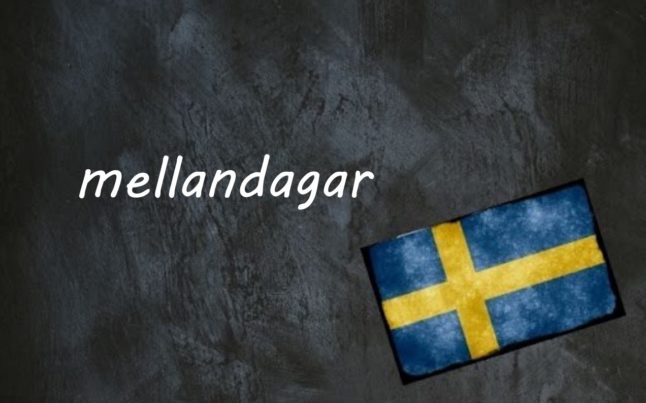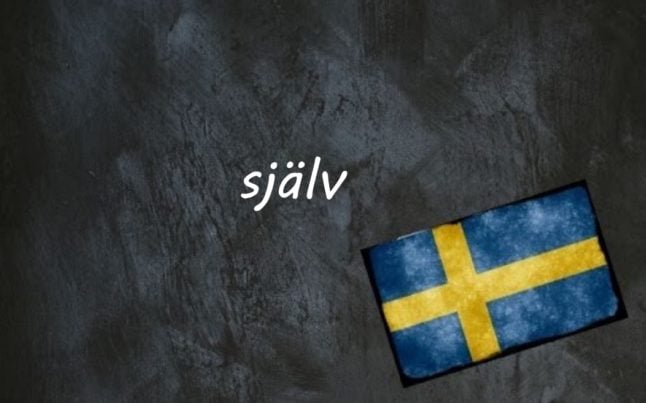You know those odd few days between Christmas and New Year when time seems to lose all meaning and your diet consists mainly of Christmas leftovers and chocolate? In Swedish, there’s a word for them.
Mellandagar literally means “between-days” and is used to talk about the time between December 26th, which is a red day or public holiday in Sweden, and January 1st, also a public holiday.
Those five days in between aren’t official red days, although many Swedish companies will give employees a full or at least half day off on December 31st and the generous ones – or those which shut down operations entirely during the holiday period – will give all five as vacation.
In offices where this doesn’t happen, there might be a scramble over who gets to book this coveted time off as holiday. It’s definitely worth asking prospective employers their policy on mellandagar if you ever find yourself choosing between job offers in Sweden!
- Don’t miss any of our Swedish words and expressions of the day by downloading The Local’s new app (available on Apple and Android) and then selecting the Swedish Word of the Day in your Notification options via the User button
This does mean that in many businesses, normal service doesn’t resume until the new year, so watch out for reduced opening times during the mellandagar if you have errands to run.
This is also a good time of year for bargain-hunting thanks to the mellandagsreor or “between-days sales” that many shops and companies offer. Or if you’d prefer to get out of town, many hotel, spa and ski resorts offer special mellandagar packages so you can take a break during this period.
Example sentences:
Vi ska ha det mysigt i mellandagarna
We’re going to have a cosy, relaxing time between Christmas and New Year
Vi har begränsade öppettider under julen och mellandagarna
We have limited opening hours from Christmas until New Year
Villa, Volvo, Vovve: The Local’s Word Guide to Swedish Life, written by The Local’s journalists, is available to order. Head to lysforlag.com/vvv to read more about it. It is also possible to buy your copy from Amazon US, Amazon UK, Bokus or Adlibris.



 Please whitelist us to continue reading.
Please whitelist us to continue reading.
Member comments